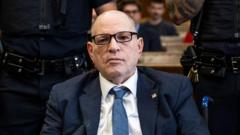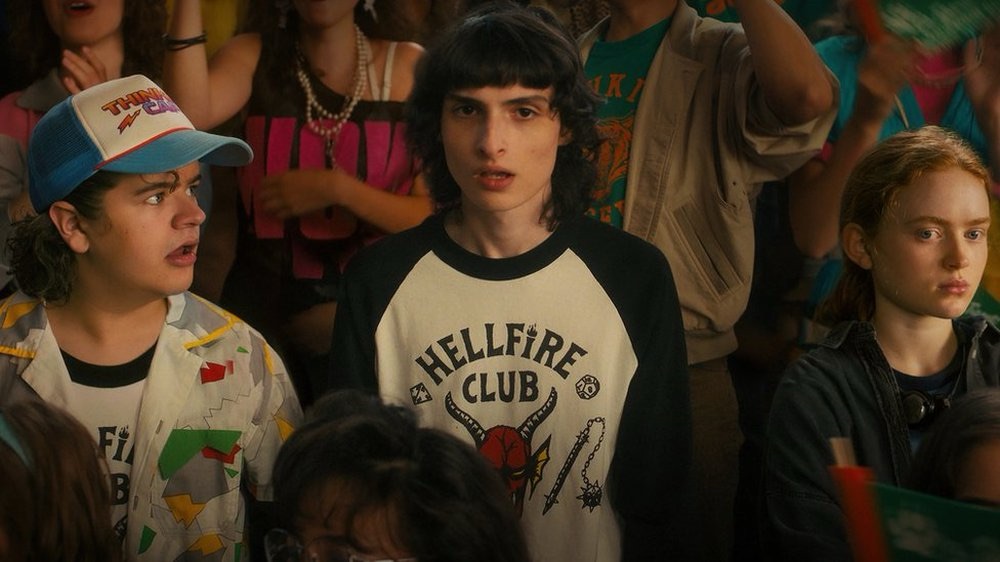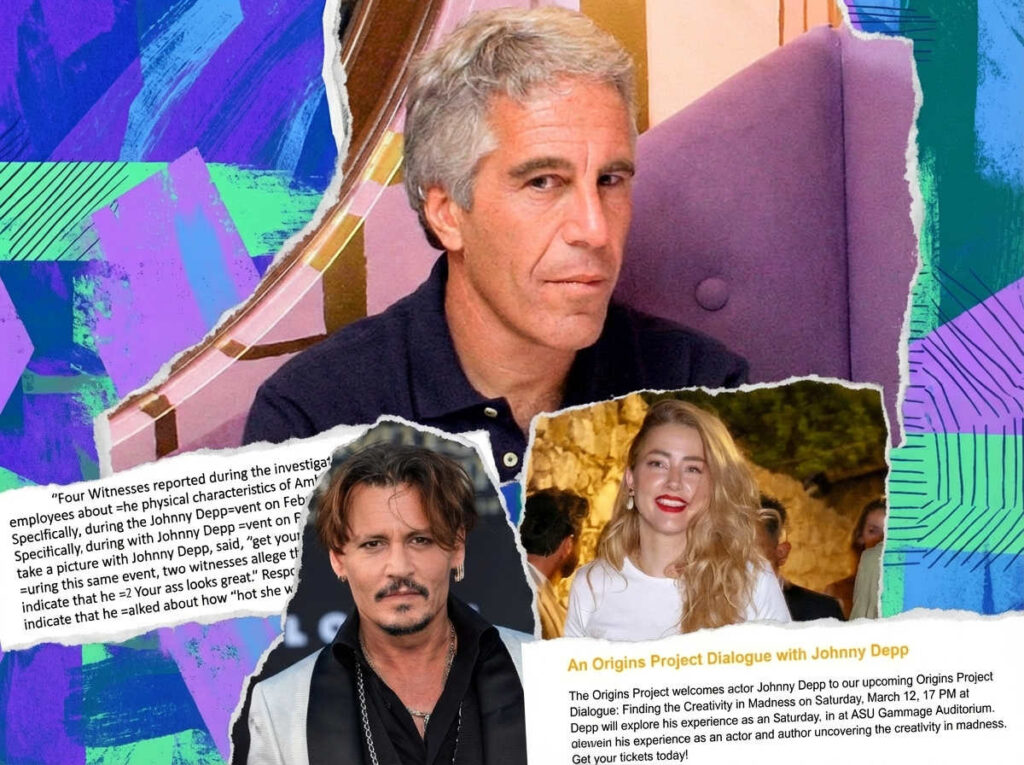In a New York courtroom, Harvey Weinstein is fighting for his innocence once more, as prosecutors outline disturbing allegations of sexual harassment and abuse against him. The disgraced film mogul, who has previously been convicted, is now being retried for the abuse of three women including a television production assistant, an aspiring actress, and a model.
Assistant District Attorney Shannon Lucey condemned Weinstein's actions, stating that he exploited his “unfettered power” in the entertainment industry to control and harm his victims. Lucey emphasized the gravity of the accusations and shared detailed accounts from the three women who say Weinstein enticed them under the disguise of professional meetings, only to assault them in private.
Weinstein’s legal team, led by attorney Arthur Aidala, has taken a combative stance, questioning the credibility of the women and suggesting they entered into "mutually beneficial” relationships with him. Aidala argued that the prosecution's case lacks substance and that the women maintained contact with Weinstein after the incidents, attempting to portray the encounters as consensual.
This retrial marks Weinstein's third legal challenge regarding sexual misconduct in just five years. Following an overturned conviction last year, the new trial has drawn attention due to the additional testimony of former Polish model Kaja Sokola, who alleges she was assaulted at the age of 16.
The implications of the trial extend beyond the courtroom, as the #MeToo movement gains momentum in the wake of Weinstein’s previous condemnations and convictions, allowing other women to step forward with their own stories of abuse.
Currently, Weinstein is serving a combined sentence of 39 years from his convictions in New York and California and remains hospitalized amidst health concerns, including cancer. As he awaits the outcome of this retrial, the legal proceedings continue to unravel the complex dynamics of power, abuse, and accountability in Hollywood.
Assistant District Attorney Shannon Lucey condemned Weinstein's actions, stating that he exploited his “unfettered power” in the entertainment industry to control and harm his victims. Lucey emphasized the gravity of the accusations and shared detailed accounts from the three women who say Weinstein enticed them under the disguise of professional meetings, only to assault them in private.
Weinstein’s legal team, led by attorney Arthur Aidala, has taken a combative stance, questioning the credibility of the women and suggesting they entered into "mutually beneficial” relationships with him. Aidala argued that the prosecution's case lacks substance and that the women maintained contact with Weinstein after the incidents, attempting to portray the encounters as consensual.
This retrial marks Weinstein's third legal challenge regarding sexual misconduct in just five years. Following an overturned conviction last year, the new trial has drawn attention due to the additional testimony of former Polish model Kaja Sokola, who alleges she was assaulted at the age of 16.
The implications of the trial extend beyond the courtroom, as the #MeToo movement gains momentum in the wake of Weinstein’s previous condemnations and convictions, allowing other women to step forward with their own stories of abuse.
Currently, Weinstein is serving a combined sentence of 39 years from his convictions in New York and California and remains hospitalized amidst health concerns, including cancer. As he awaits the outcome of this retrial, the legal proceedings continue to unravel the complex dynamics of power, abuse, and accountability in Hollywood.






















